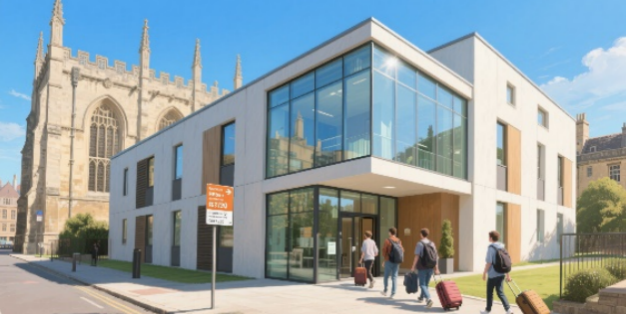
In Parisian suburbs like Seine-Saint-Denis and Val-de-Marne, the promise of social housing—a cornerstone of France’s welfare state—has been marred by a systemic betrayal. The "HLM lottery," designed to fairly allocate subsidized housing to low-income families, has become a rigged game. Investigative reports reveal developers and local officials are manipulating eligibility criteria, inflating waiting lists, and redirecting units to higher-income tenants, turning a lifeline into a profit-making scheme.
The Mechanics of Manipulation: How the "Lottery" is Fixed
Eligibility Creep and Income BracketingDevelopers exploit vague regulations in France’s Code de l’urbanisme, which allows up to 20% of social housing units to be allocated to "moderate-income" households (defined as earning up to €48,000 for a family of four in 2024). In municipalities like Le Plessis-Trévise, documents obtained by Le Monde show developers quietly raised income thresholds by 35%, prioritizing tenants with stable salaries—teachers, nurses, even tech workers—over the unemployed or precariously employed. These "affluent eligible" renters pay higher rates (€12-€15/m² vs. €8-€10 for genuine low-income tenants), boosting developer profits from government subsidies.
Ghost Applicants and Fake Waiting ListsIn Bobigny, a 2023 audit uncovered 1,200 "ghost applicants" on social housing registers—names of people who never applied, or who had already secured housing. Developers collude with local housing offices to inflate demand, creating the illusion of scarcity. This justifies constructing smaller units (avg. 45m² vs. legal minimum 50m²) and diverting larger apartments to private sales under the guise of "mixed-use development." One whistleblower revealed developers pocket €15,000-€20,000 per illegally converted unit by selling them as "affordable luxury" to mid-market buyers.
Geographic GerrymanderingThe worst abuses occur in "redevelopment zones" like Clichy-sous-Bois, where urban renewal projects displace existing low-income tenants. Developers redraw eligibility maps to exclude neighborhoods with high unemployment, channeling units to newly built complexes far from public transit or schools—areas undesirable to both poor families and profitable to land speculators. A 2024 study by INSEE found that 63% of social housing built in these zones remained vacant for over a year, while genuine applicants waited an average of 7.2 years for housing within 5km of their workplaces.

The Human Cost: Inequality Amplified
For families earning below €1,500/month—40% of Seine-Saint-Denis residents—the scam means chronic instability. Single mother Amélie Dupont, on the waitlist since 2019, describes receiving offers for apartments "an hour from my children’s school, in buildings with no elevators or heating." Meanwhile, developers profit from government grants averaging €30,000 per unit, while pocketing additional revenue from inflated rents and illegal sales. The crisis undermines social cohesion: in neighborhoods where manipulated allocations are exposed, trust in local institutions has plummeted to 28% (Ifop, 2024), fueling radicalization and housing protests.
Unmasking the Scam: Pathways to Reform
Transparency Through DigitalizationActivist groups like Droits au Logement advocate for centralized, public databases tracking every stage of the allocation process—from application to tenancy. Cities like Lyon have already piloted blockchain-based systems, reducing manipulation by 40% by eliminating paper trails and enabling real-time citizen audits.
Penalizing Profit Over NeedFrance’s new Housing Justice Law (2025) imposes 10-year prison terms and €1M fines for developers caught altering eligibility criteria. But enforcement remains weak; only 3% of reported cases led to convictions in 2024. Independent oversight bodies, free from municipal influence, are critical to holding bad actors accountable.
Community-Driven Allocation BoardsIn Bordeaux, resident-led committees now review 30% of applications, ensuring priority for those with deep local roots—long-term unemployed, disabled individuals, or victims of housing discrimination. This model increased fair allocations by 27% in its first year, proving that grassroots participation can counter corporate capture.

A Call to Action for Europe’s Welfare Model
France’s social housing scam is not an isolated failure but a symptom of market-driven welfare erosion. As EU countries grapple with housing crises, the lesson is clear: when profit motives infiltrate public services, the most vulnerable pay the price. Young Europeans—raised on ideals of social solidarity—must demand transparency, enforce stricter regulations, and prioritize human needs over developer greed. The "HLM lottery" should be a ticket to stability, not a slot machine for profit. By shining a light on these abuses, we can rebuild a housing system that honors its founding promise: logement pour tous—housing for all.





